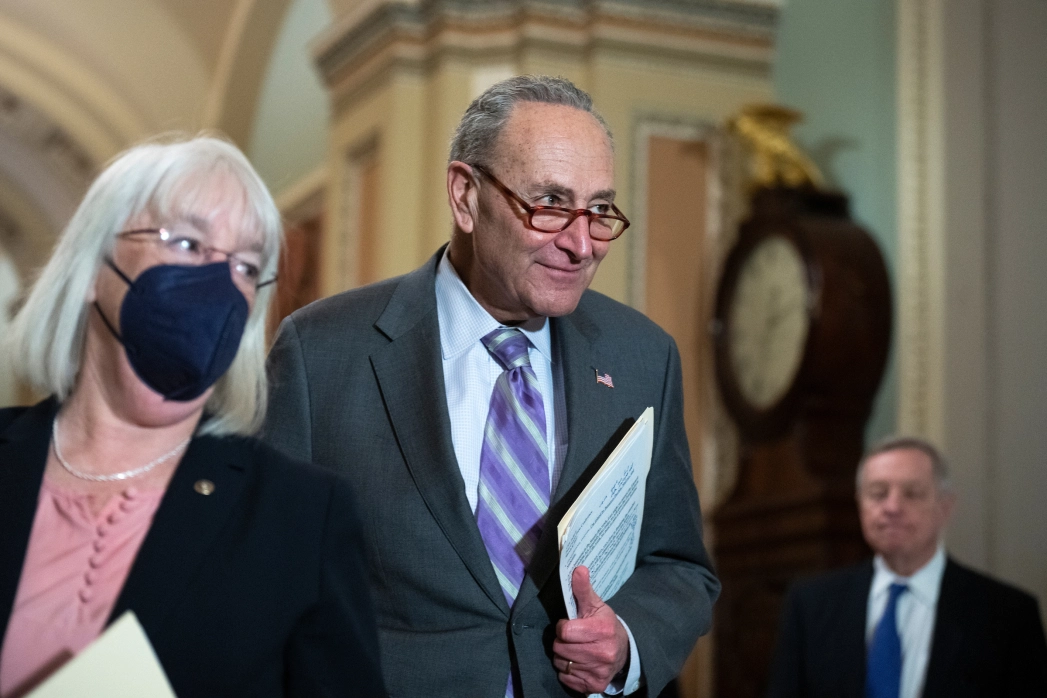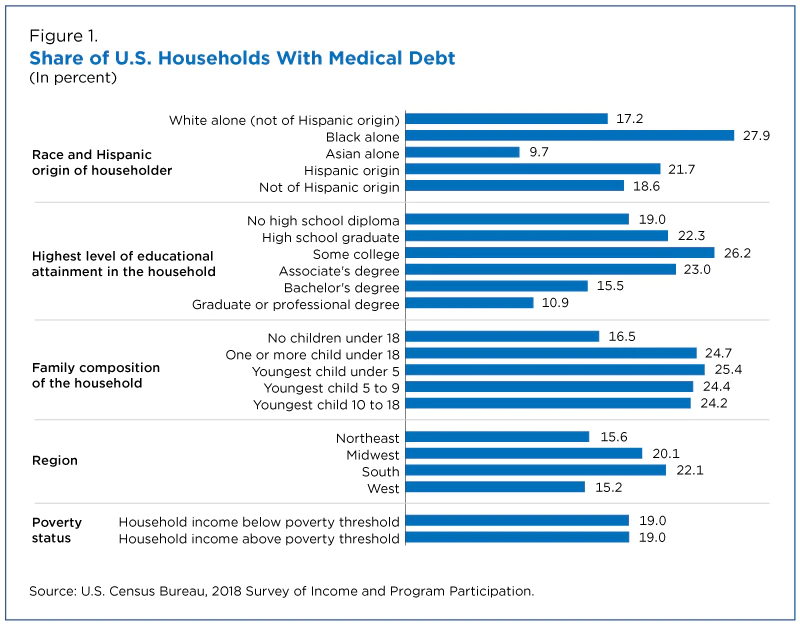|
|
Senior GOP Sen. Grassley Tells Democrats to Pass Drug Price Legislation Now |
|
Sen. Chuck Grassley (R-Iowa) acknowledged during a Senate Finance Committee hearing Wednesday that it would be difficult to pass legislation lowering drug prices if his own party regains control of Congress following the 2022 midterm elections. He then called on Democrats to pass it now.
Grassley made the admission while speaking to Committee Chair Ron Wyden (D-Ore.), saying, "I think you suggested the difficulty of passing something like this in a Republican Congress, so you got an opportunity to do it right now, when Democrats and Republicans can work together to accomplish this. If we want to reduce drug prices, then we need to do it now."
Democrats' most recent attempts to lower skyrocketing drug costs, including allowing Medicare to negotiate prices, stalled in December, leading to current attempts to try again.
“Seniors agree with Senator Grassley’s conclusion that now is the time to pass legislation to lower drug prices,” said Robert Roach, Jr., President of the Alliance. “His statement is also a warning: if the GOP regains control of the House or Senate, older Americans will have to pay even more for the drugs they need to stay healthy.”
|
|
Pfizer asks FDA to Approve Fourth Dose of COVID Vaccine for Seniors |
|
Pfizer and BioNTech have asked the Food and Drug Administration (FDA) to greenlight a fourth dose of their COVID-19 vaccine for Americans 65 and older, citing data from Israel suggesting that the additional booster could curb infections and severe illness in the highest-risk age group.
In an analysis of records from the Israeli Ministry of Health, Pfizer and BioNTech said that rates of severe illness from COVID-19 were 4 times lower among people who got a second booster at least four months after their first.
Also, Moderna announced Thursday that it has asked the FDA for authorization for a second Covid-19 booster shot for everyone 18 and older.
FDA spokesperson Abby Capobianco said the agency has received the Pfizer request and plans to review it "as expeditiously as possible using our thorough and science based approach."
"The hope would be that after our third shots we're able to get enough time out of them that we end up on essentially a yearly COVID-19 booster," Dr. Peter Marks, the FDA's top vaccines official, told attendees at an event hosted by the University of California San Francisco and Stanford University in January.
|
|
Omnibus Spending Bill Includes Increases for Social Security Administration, Senior Nutrition, and the CDC |
|
On Tuesday President Biden signed into law H.R. 2471, the “Consolidated Appropriations Act, 2022,” a $1.5 trillion spending bill for the current fiscal year that began over five months ago. Until a deal was reached, funding levels had been set at levels enacted under the previous administration.
The legislation contains all 12 fiscal 2022 spending bills, as well as $13.6 billion in supplemental appropriations to address the crisis in Ukraine and numerous other provisions. It passed the House 249-180 on March 9. The Senate then passed it 68-31 on March 10. |
|
|
Senate Majority Leader Charles Schumer (NY) and other chamber leaders worked furiously last week to resolve GOP objections in order to clear the $1.5 trillion omnibus spending package. |
|
The 2022 Labor, Health and Human Services, Education, and Related Agencies portion of the funding bill provides $213.6 billion, an increase of $15.3 billion – 7.7 percent – above 2021. It includes $13.3 billion for the Social Security Administration’s (SSA) operating |
|
expenses, an increase of $411 million above the FY 2021 enacted level.
"The combination of SSA’s previous underfunding and the pandemic have been enormous hurdles for the agency to overcome,” said Richard Fiesta, Executive Director of the Alliance. “SSA’s work force has done a tremendous job under very difficult circumstances, but the new level of funding was badly needed.”
The legislation also provides a total of $45 billion for the National Institutes of Health (NIH), an increase of $2.25 billion above the FY 2021 enacted level. That amount includes $6.9 billion for the National Cancer Institute and $3.5 billion for Alzheimer’s disease and related dementia research.
The omnibus includes a total of $8.5 billion for the Centers for Disease Control and Prevention (CDC), an increase of $582 million (7%) above the FY 2021 enacted level. That is designed to allow a more flexible structure for faster response to new issues. The Biomedical Advanced Research and Development Authority would see a 25% boost to support further research and development of vaccines and therapeutics.
The legislation funds the Administration for Community Living (ACL) at $2.3 billion. This amount includes $967 million for Senior Nutrition programs, an increase of $15 million above the FY 2021 enacted level. |
|
As Medical Debt Stacks Up, Many People in Their Early 60s Count the Days Until They Are Eligible for Medicare |
|
As we age, we typically need more health care and often have higher medical costs. Unsurprisingly, middle-aged adults are therefore more likely than young adults to have debt related to those health expenses. Fortunately, the percentage of adults with significant medical debt decreases when people reach Medicare age. |
|
|
After analyzing data from the Survey of Income and Program Participation (SIPP), a nationally representative survey of U.S. households, the Peterson Center on Healthcare and Kaiser Family Foundation have found that 12% of adults ages 50 to 64 report having significant medical debt, compared to 6% for those ages 65 to 79.
Most of the 23 million adults with significant medical debt owe over $1,000, and about 3 million (13%) owe more than $10,000.
People with disabilities, those in worse health, and poor or near-poor adults are more likely to have significant medical debt. Black Americans and people living in the South or in Medicaid non-expansion states are also more likely to face this financial burden.
“Even for people with health insurance, a serious injury or illness or one major health event can cost thousands of dollars out-of-pocket due to denied claims, deductibles and other cost-sharing requirements,” said Joseph Peters, Jr., Secretary-Treasurer of the Alliance. “When Medicare kicks in at age 65, it often comes as a huge relief.” |
|
Thanks for reading. Every day, we're fighting to lower prescription drug prices and protect retirees' earned benefits and health care. But we can't do it without your help. Please support our work by donating below. |
|
|
|
|
Alliance for Retired Americans | 815 16th Street, NW | Washington, DC 20006 | www.retiredamericans.org



